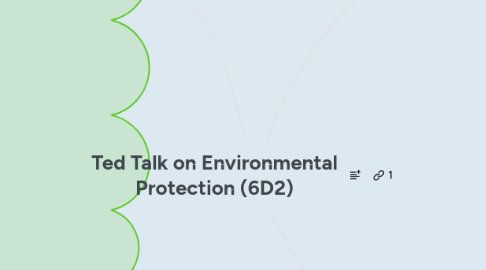
1. Endangered Animals - the problem (1. Why are the animals going extinct? 2. What have humans done to their habitat, food source? 3. What are the problems there are facing now? 4. What can we do to help?)
1.1. Aidan (Amur Leopard)
1.1.1. Overhunting of animals
1.1.1.1. Hunters hunt endangered animals illegally for their skin or body parts. Amur Leopards are hunted for their beautiful, spotted fur (costs US$1,000 per pelt)
1.1.1.1.1. Leads to animals' extinction
1.1.1.2. We can help by having wildlife protection areas for the endangered species which strictly bans hunting.
1.1.1.2.1. Like Amur Leopards which have a protected area in Russia called The Leopard National Park
1.2. Megan - Minke Whales
1.2.1. Why are whales going extinct?
1.2.1.1. Global Warming
1.2.1.1.1. Water level rising - whales may not be able to adapt to the new environment
1.2.1.2. Marine Pollution
1.2.1.2.1. Plastic Ocean
1.2.1.3. Whale Hunting
1.2.1.3.1. A dead whale costs US$15000, a larger one can cost even more.
1.2.1.3.2. It has an immense knock-on food chain effect across the ocean as whales are at the top of the food chain.
1.2.2. How to prevent whales going extinct
1.2.2.1. Donate money to WWF
1.2.2.1.1. The money provides the needs of whales
1.2.2.1.2. You can protect threatened species and their habitats with a donation t
1.3. 4
1.4. Tina -
1.4.1. global warming
1.5. Brandon - white tigers
1.5.1. human kill them for their skin
1.6. Andrea - Kiwi Birds
1.6.1. Logging
1.6.1.1. Loss of biological diversity of birrds
1.6.2. Loss of habitat
1.6.2.1. Human activities
1.6.2.1.1. Housing
1.6.2.1.2. Hunting of birds
1.6.3. Climate change
1.6.3.1. Affect kiwi birds' eating habitats
1.6.3.2. Experiencing drought
1.6.3.2.1. If daylight comes along all of a sudden, it will dehydrate them and make them die
1.6.3.2.2. Lack of water (Water is important for healthy digestion)
2. Marine Pollution - the problem (1. What is the problem? 2. Why is this a problem to us? 3. What have humans done that have caused this problem? 4. What can we do to help?)
2.1. Alvina - Trash in the ocean
2.1.1. Humans throw rubbish into the ocean, making fish eat them
2.1.2. we eat the fish which probably swallowed the plastic
2.1.3. rubbish float in the ocean
2.1.4. we can reduce the use of plastic
2.1.5. bring recyclable bags when buying stuff
2.2. Annette - Toxins in the food chain
2.2.1. When humans go to the beach, they usually leave rubbish which will be washed away into the ocean
2.2.2. If the fish eats plastic that contains toxins, and we eat the fish, the toxin will go to our body,so we end up harming our own body
2.2.3. Throw unwanted trash away in the ocean
2.2.4. We can use reusable items instead of disposable ones, we can also pick up trash on beaches
2.3. Luciana - Trash in the ocean
3. Air Pollution - the problem (1. why is this a problem to us? 2. What have humans do that have caused this problem? 3. What can we do to help?)
3.1. Edwin - Bad Air Quality
3.1.1. the pollution from cars and transports
3.1.1.1. In Taiwan, serious and critical pollution came from cars and other transports makes the air becoming dark yellow in colour and leads to bad quality.
3.1.1.1.1. The Taiwan government established policies to prevent further deterioration, which the odd number of car numbers can only drive on Monday, Wednesday, Friday and Sunday when the even numbers of car numbers can drive on Tuesday, Thursday and Saturday exclusively and they switch days on driving every week.
3.1.2. the burning of fossil fuels
3.1.2.1. When burning fossil fuels, it produces a lot of carbon dioxide which will affect the atmosphere.
3.1.2.1.1. The global warming will worsen soon and the weather will be hotter and hotter.
3.2. Bernice - Bad Air Quality
3.2.1. when people go to beaches, plastic left there will get washed into the ocean

